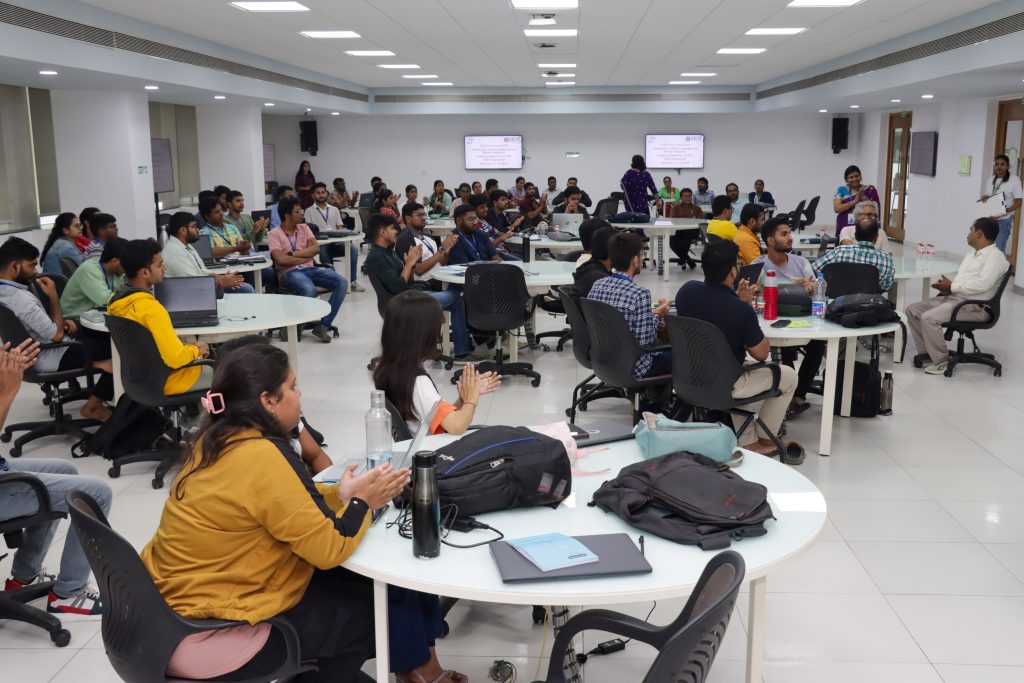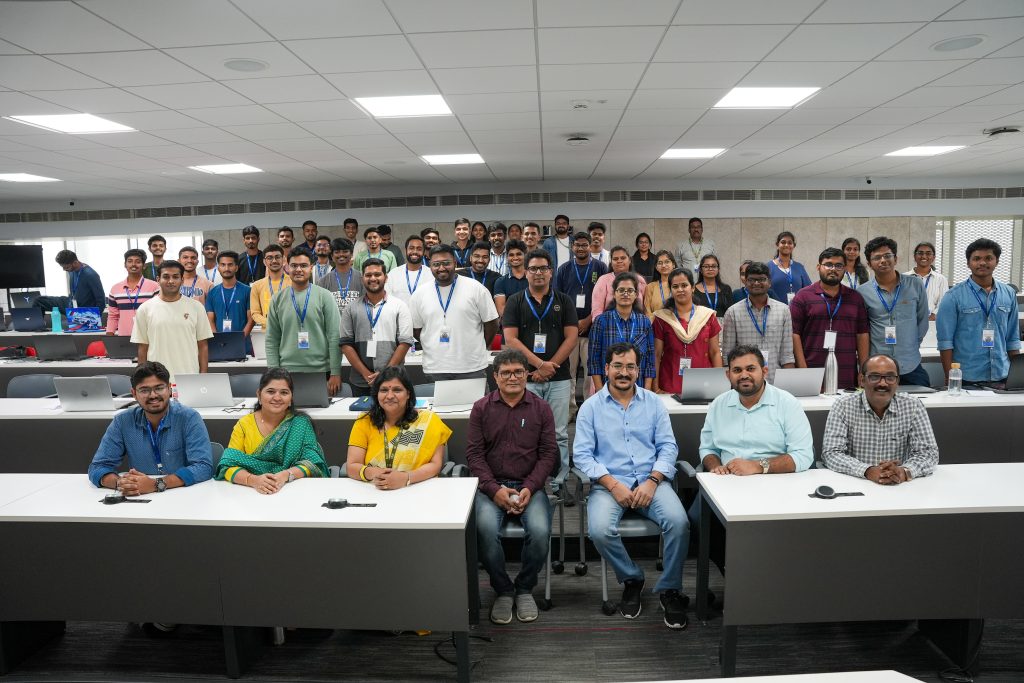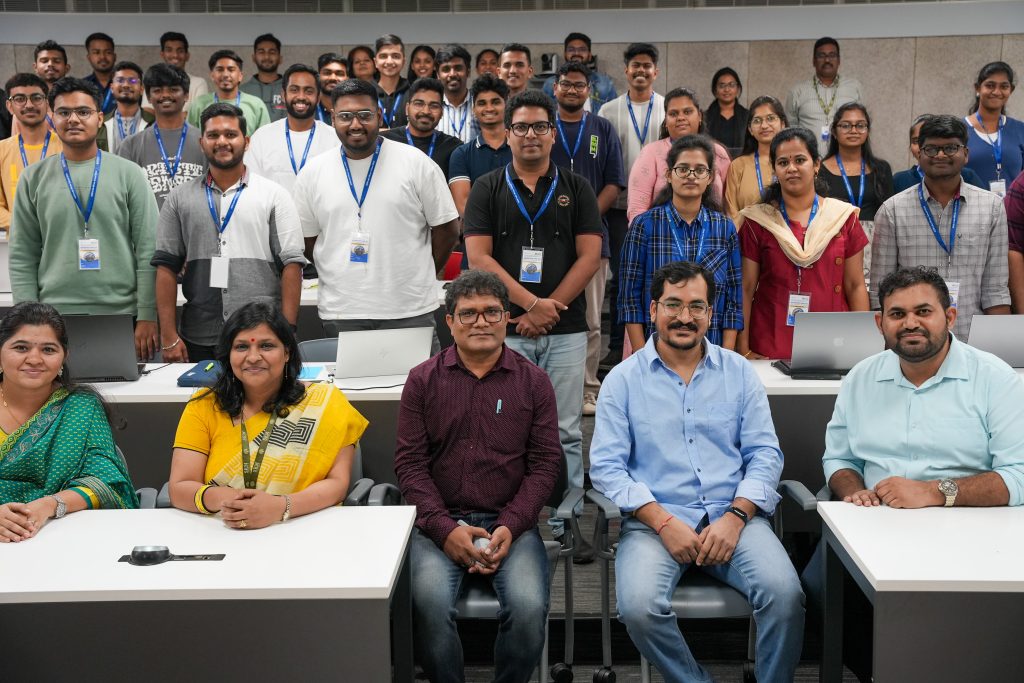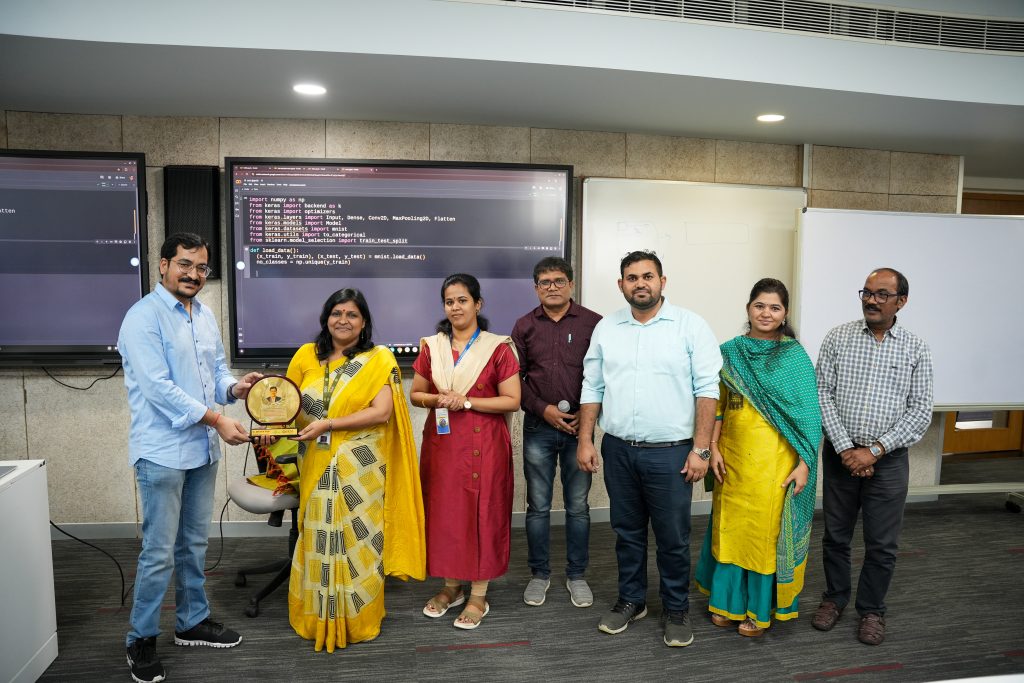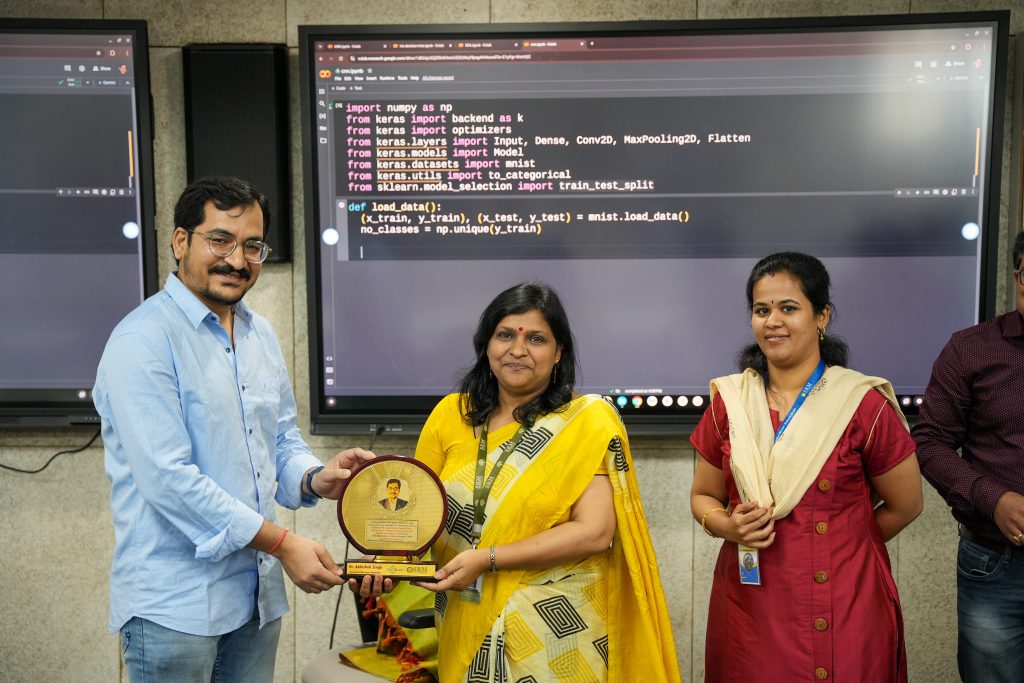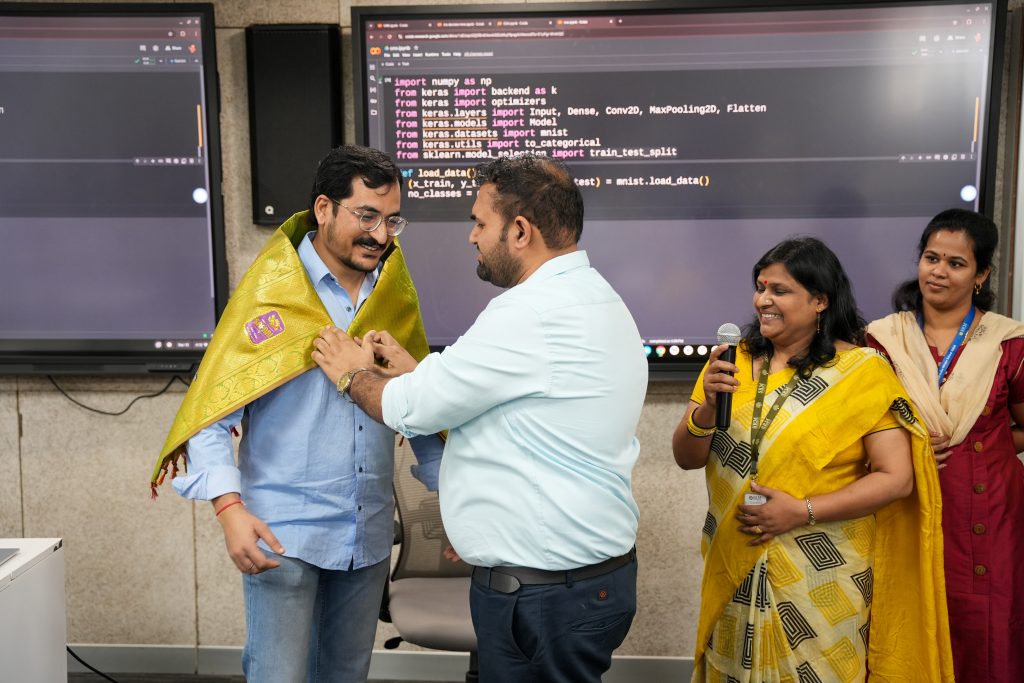- SRM-AP Ranked as Iconic Education Institution to Look Out for in 2025 January 7, 2025
Outlook
Continue reading →
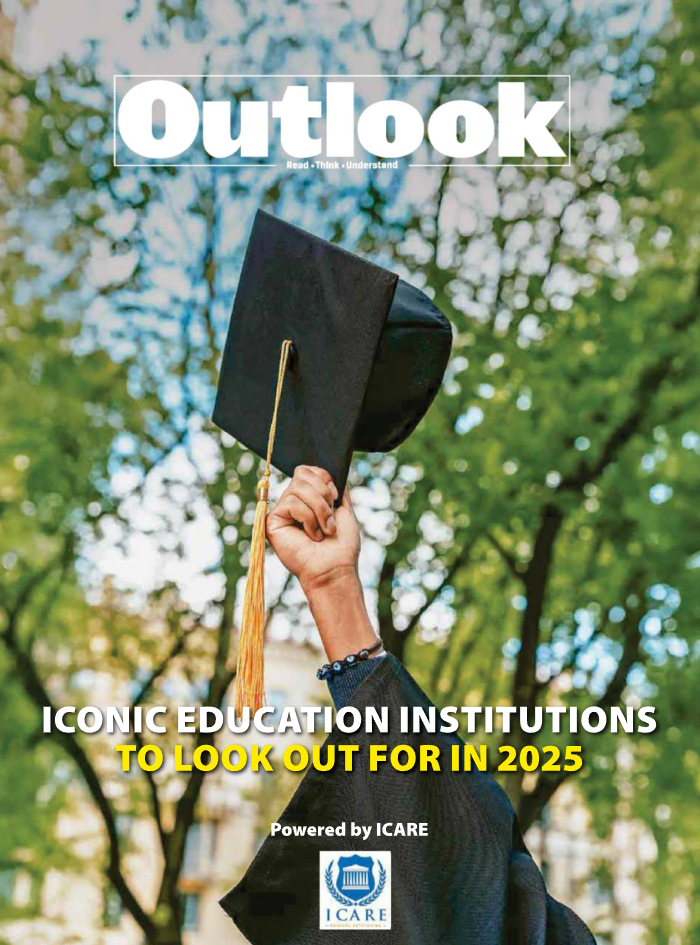
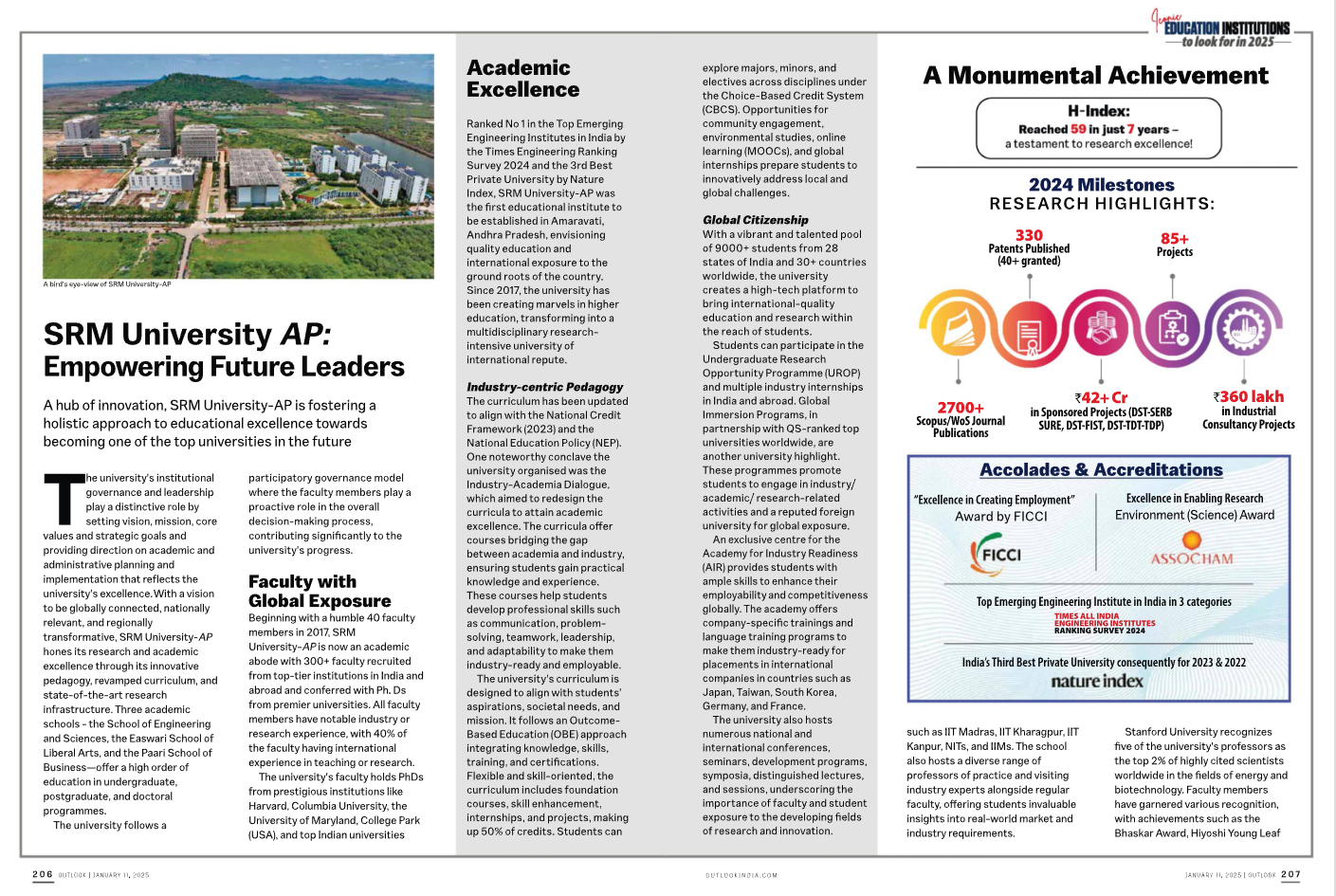
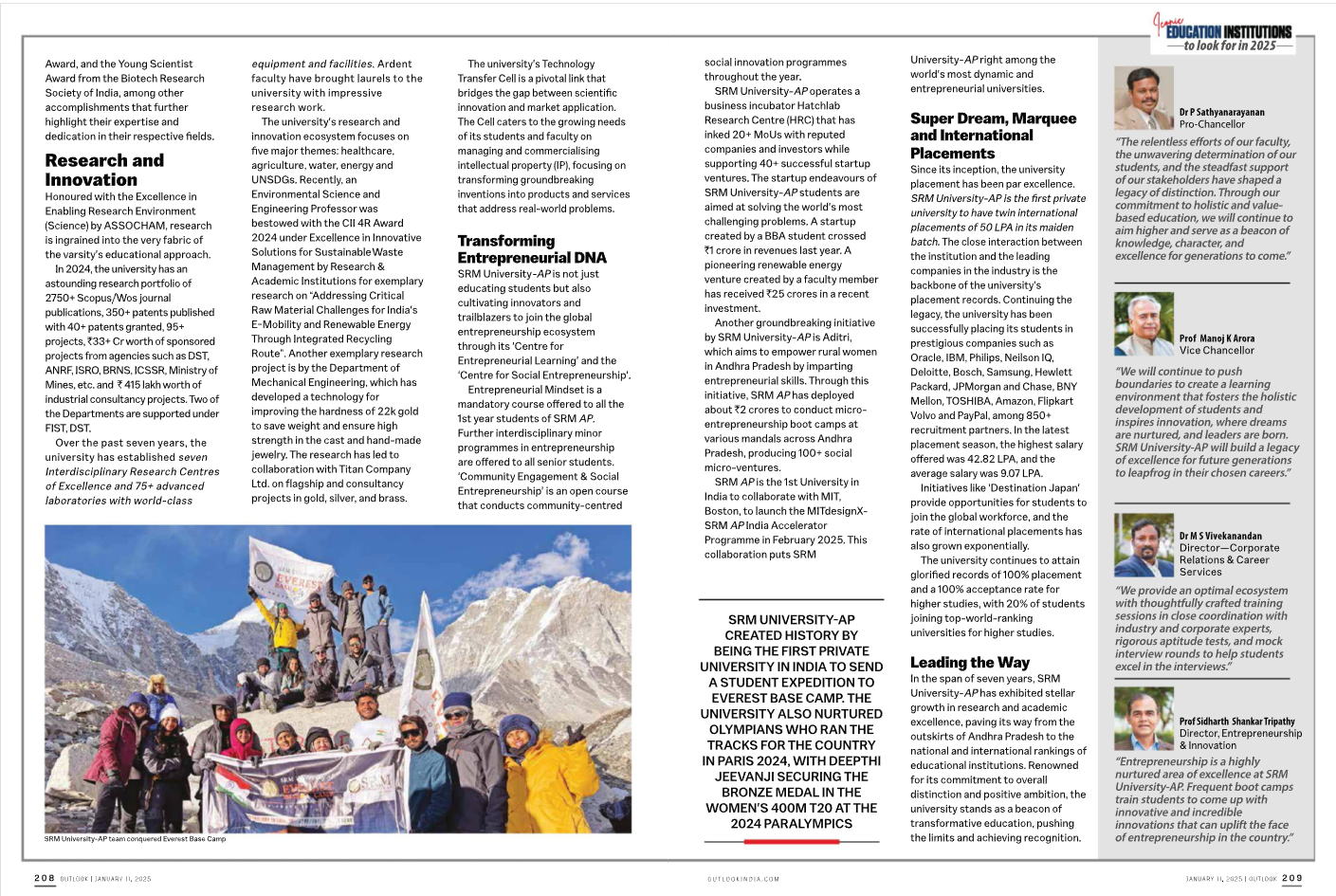
- 2D Metallene Designs to Advance Multifunctional Electrocatalysis January 6, 2025
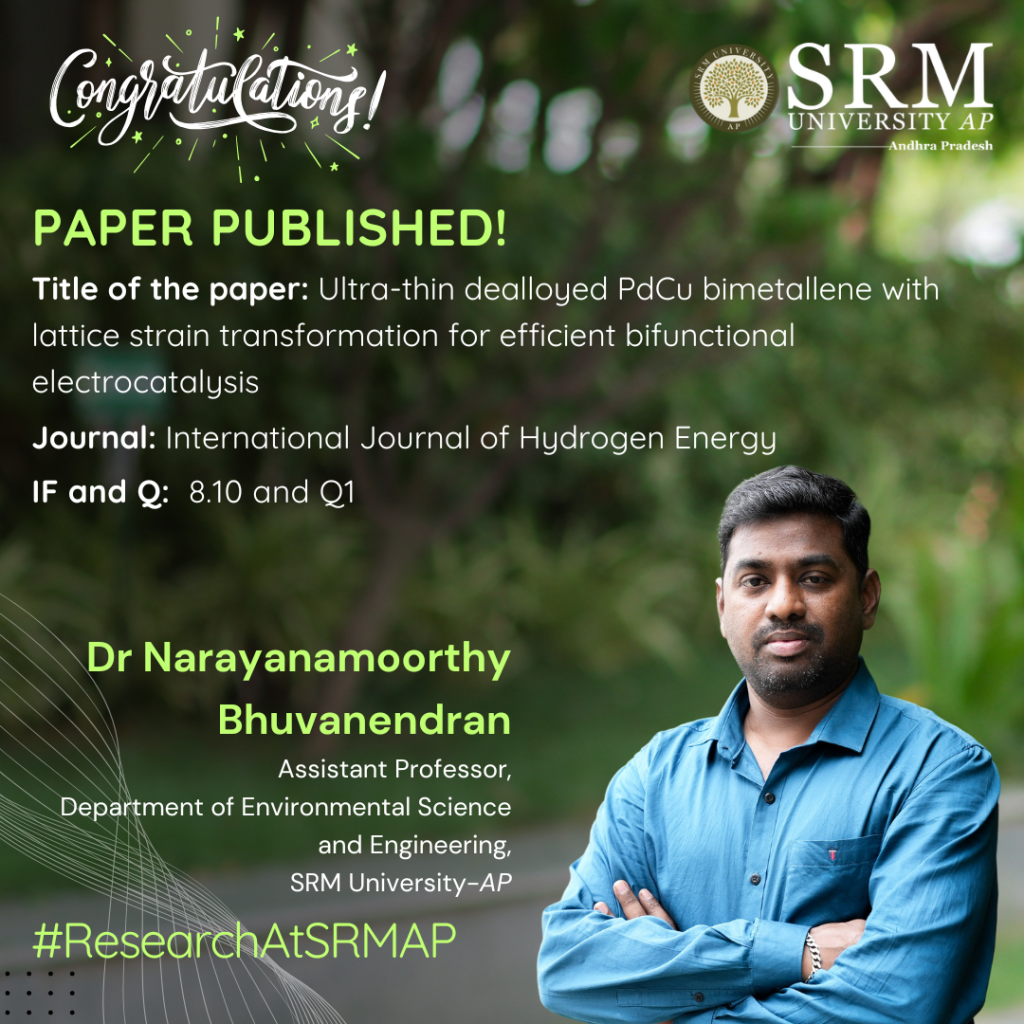
Dr Narayanamoorthy Bhuvanendran, Assistant Professor in the Department of Environmental Science and Engineering, has published his research work as an article titled “Ultra-thin Dealloyed PdCu Bimetallene with Lattice Strain Transformation for Efficient Bifunctional Electrocatalysis” in the esteemed International Journal of Hydrogen Energy, which has an impact factor of 8.10. His work underscores the development of 2D PdCu bimetallene with improved structural and electronic properties displaying super-catalytic behaviour.
Abstract
Two-dimensional (2D) PdCu bimetallene (PdCu) demonstrates exceptional structural and electronic properties, making it highly effective for electrochemical reactions in energy applications. Electrochemical dealloying (DA) of PdCu enhances surface reactivity by modulating electronic structure and inducing strain, optimising its performance for oxygen reduction (ORR) and methanol oxidation (MOR) in alkaline media. DA PdCu features a heterogeneous surface with abundant defects, improving active site availability and reaction kinetics. It achieves superior ORR mass activity (0.62 mA µg⁻¹) with a 10 mV positive half-wave potential shift after 20,000 cycles and MOR mass activity (3335.9 mA mg⁻¹) with 62.3% retention after 10,000 cycles. Theoretical studies reveal the impact of strain-induced electronic modulation on intermediate adsorption energies, corroborating experimental findings. This alloying-dealloying strategy in 2D PdCu bimetallene offers a robust approach to advancing multifunctional electrocatalysis with enhanced durability and performance.
Explanation of the Research in Layperson’s Terms
This research highlights the development of a two-dimensional PdCu bimetallene catalyst with tailored structural and electronic features, offering transformative advancements for electrochemical energy conversion and storage systems. The unique properties of 2D metallene layers, including their high surface area, tunable electronic structure, and enhanced surface reactivity, play a pivotal role in optimising catalytic performance. By employing a controlled dealloying process, the atomic and electronic structure of PdCu bimetallene is significantly modified, introducing lattice distortions, abundant surface defects, and a heterogeneous crystalline-amorphous interface. These features create more active sites and improve the interaction with reaction intermediates, leading to superior catalytic behaviour. The material demonstrates outstanding efficiency in oxygen reduction (ORR) and methanol oxidation (MOR), critical reactions in fuel cells and other electrochemical energy systems. For ORR, the catalyst achieves high mass activity, long-term stability, and resistance to degradation, maintaining its performance after extensive testing. In MOR, the catalyst exhibits exceptional activity and durability, retaining a significant portion of its efficiency over prolonged cycles. These structural and functional attributes emphasize the importance of 2D metallene designs and the alloying-dealloying strategy in enhancing the structure-activity relationship, establishing a foundation for innovative electrocatalysts in sustainable energy technologies.
Practical Implementation/ Social Implications of the Research
This research offers a practical pathway to revolutionise renewable energy systems by advancing next-generation electrocatalysts for fuel cells, metal-air batteries, and other energy conversion technologies. The optimised two-dimensional PdCu bimetallene, with enhanced ORR and MOR performance, demonstrates significant potential for clean energy applications such as proton-exchange membrane fuel cells and direct methanol fuel cells, addressing critical needs for efficiency and durability. The scalable, environmentally friendly alloying-dealloying synthesis reduces reliance on expensive platinum, lowering production costs while delivering high catalytic performance. By enabling efficient energy storage and conversion, supporting carbon-neutral systems, and inspiring the design of versatile 2D metallenes for diverse applications, this research significantly contributes to sustainable energy transitions and global climate goals.
Collaborations
- Prof. Sae Youn Lee, Department of Energy and Materials Engineering, Dongguk University, Seoul, Republic of Korea.
- Dr Wan-Gil Jung, Korea Basic Science Institute, Gwangju Center, Republic of Korea.
- Prof. Ming-Chang Lin, Department of Applied Chemistry, National Yang-Ming Chiao Tung University, Hsinchu, Taiwan.
- Dr Venkatesan Srinivasadesikan, Department of Chemistry, School of Science and Humanities, Vignan’s Foundation for Science, Technology and Research, Guntur, Andhra Pradesh, India.
Future Research Plan
Future research will focus on designing nanostructured hybrid electrocatalysts with enhanced activity, stability, and selectivity for energy and environmental applications. Emphasis will be placed on tailoring nanoscale architectures and synergistic material interactions to optimize performance in processes such as water splitting, CO2 reduction, NO3 reduction, fuel cells, and pollutant degradation, enabling scalable and sustainable solutions to global challenges.
Continue reading → - SRM AP to Host State’s First-ever Green Hydrogen Summit January 2, 2025
The Hindu
Continue reading →
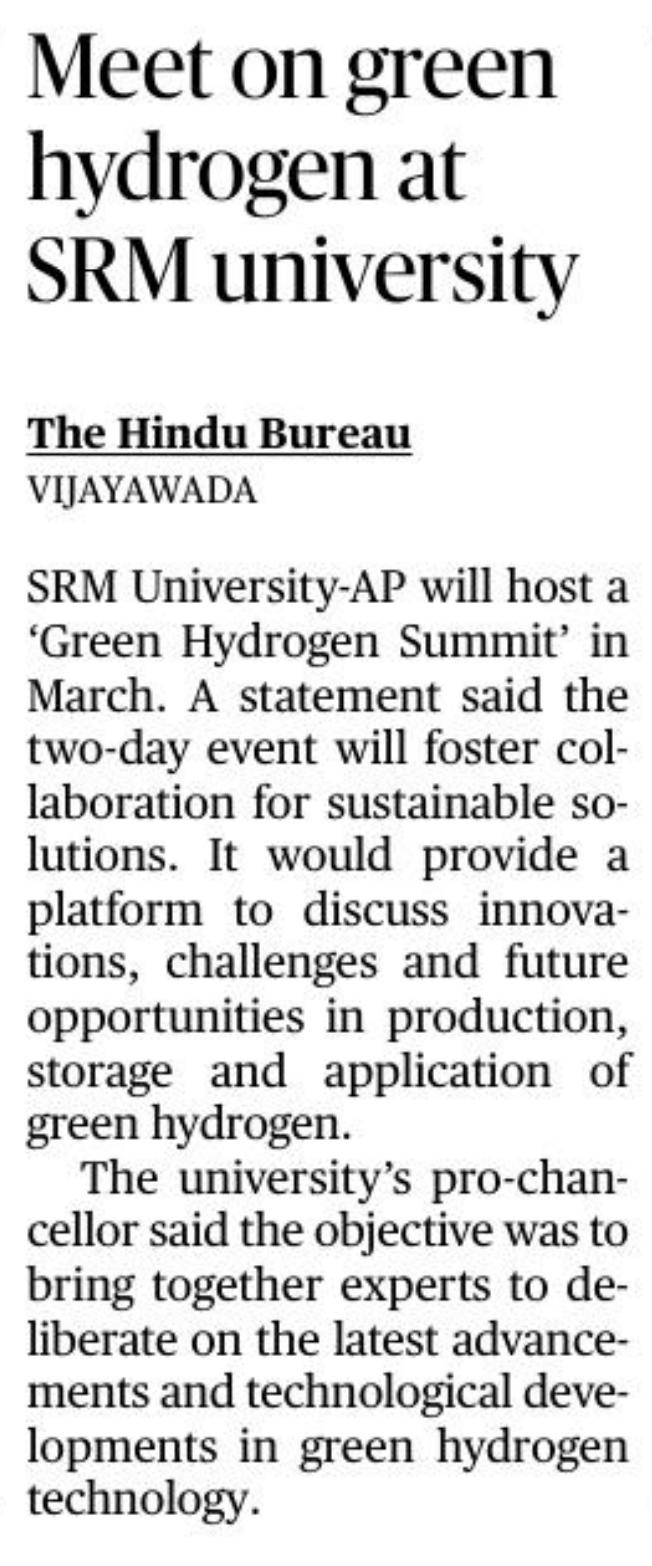
The New Indian Express

The Hans India
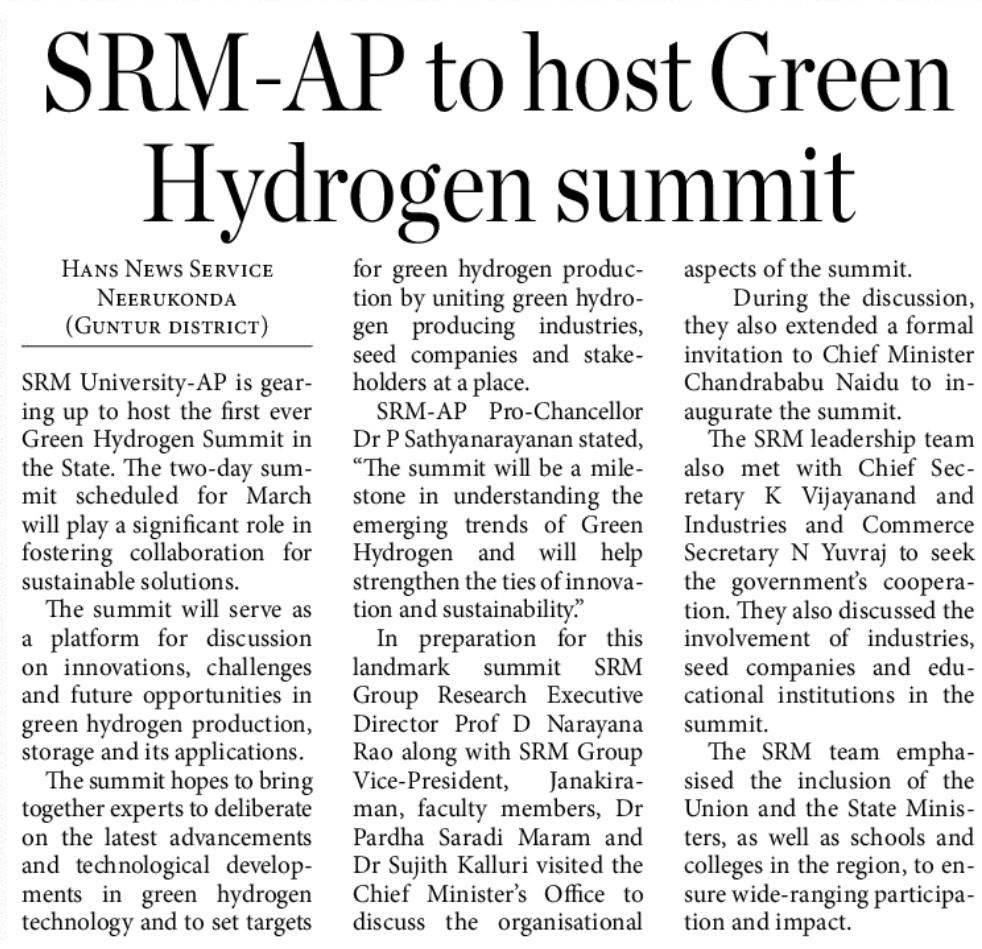
Eenadu
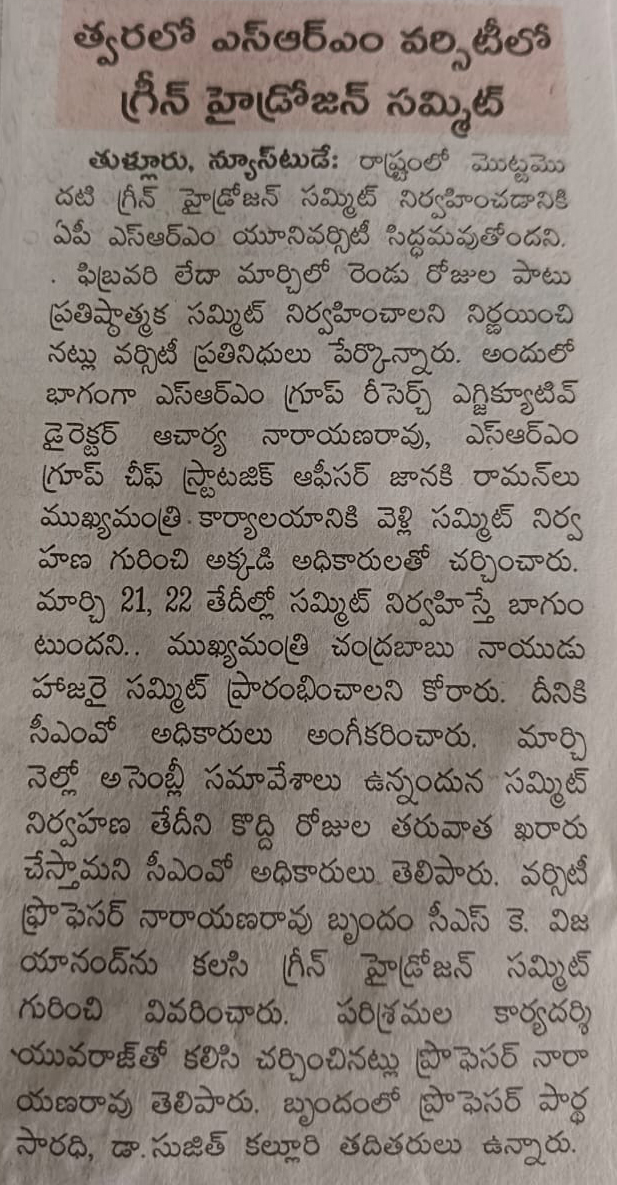
Andhrajyoti
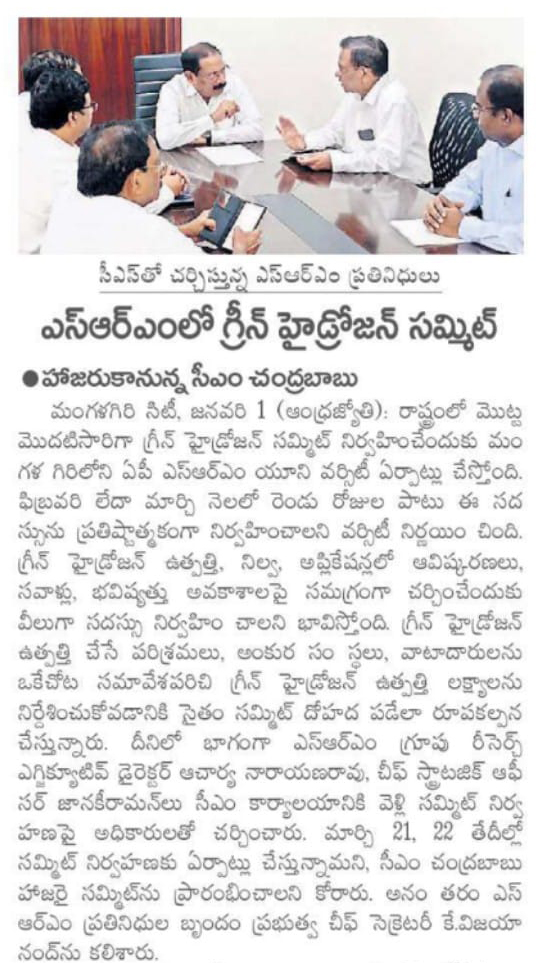
Andhra Patrika
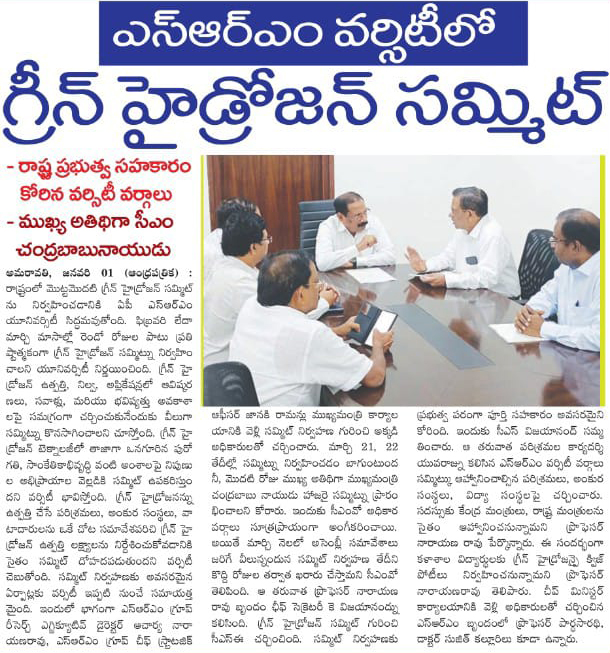
Paalana Daily
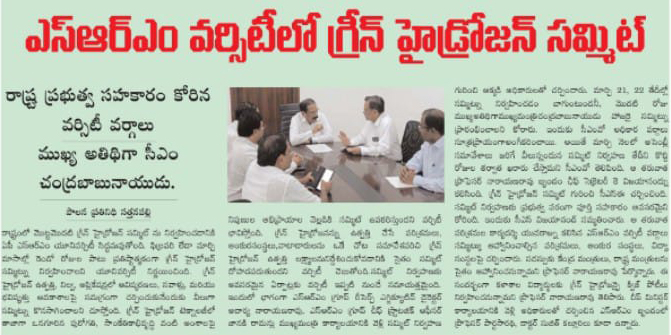
Mangalagiri Times
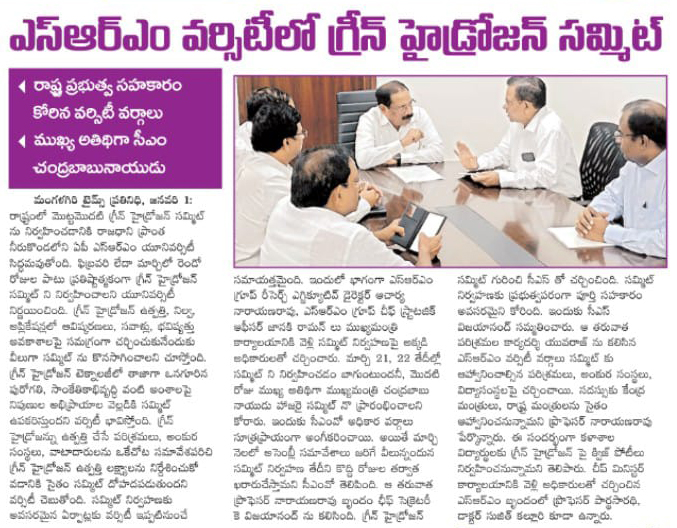
Visalaandhra
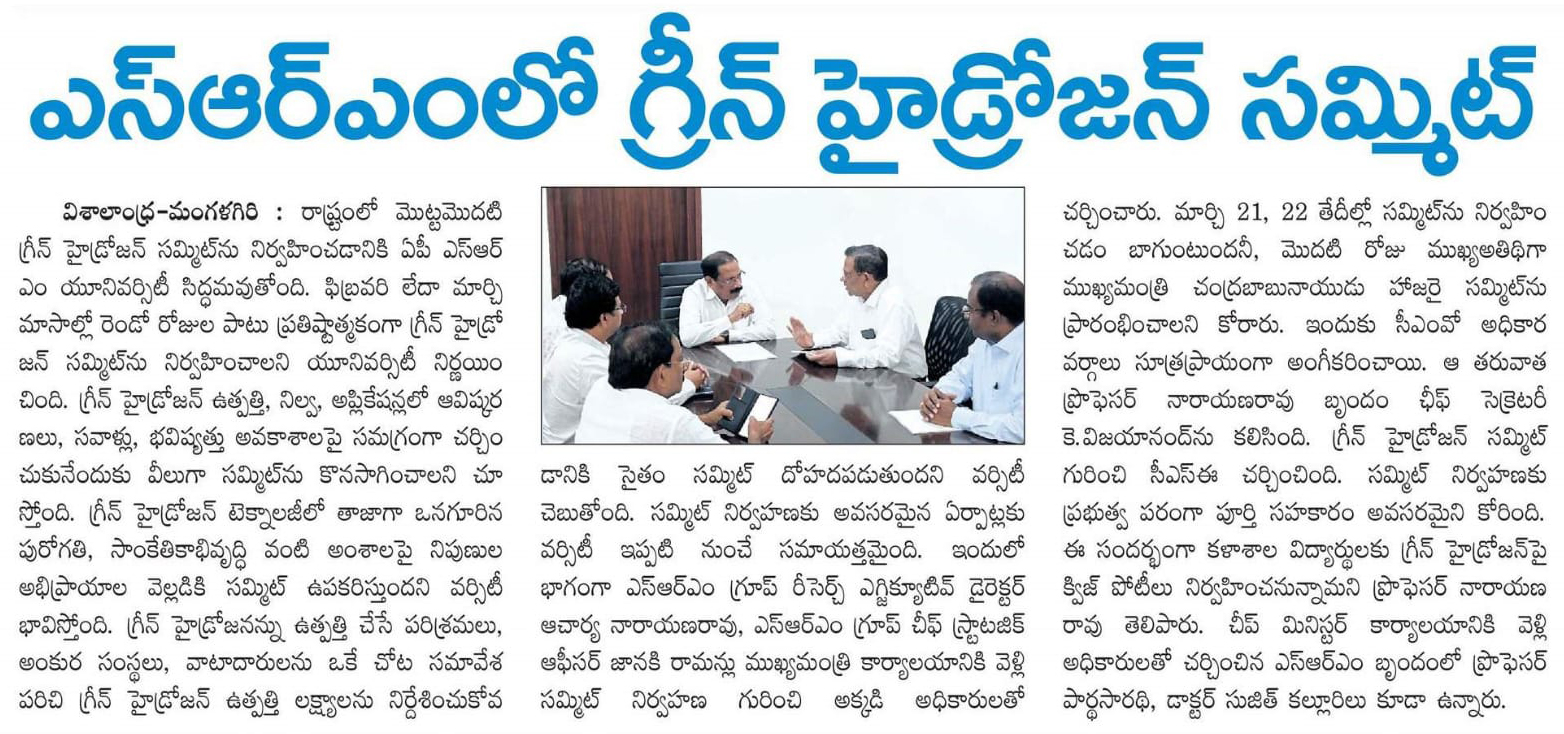
Vartha
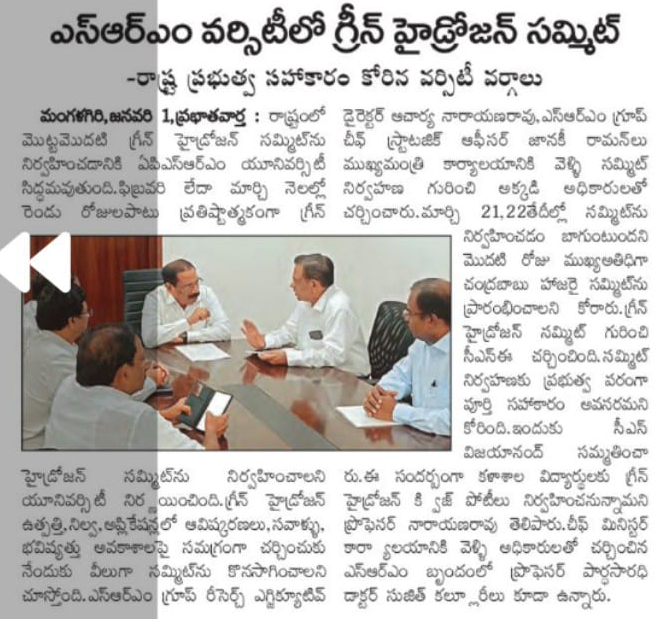
Surya
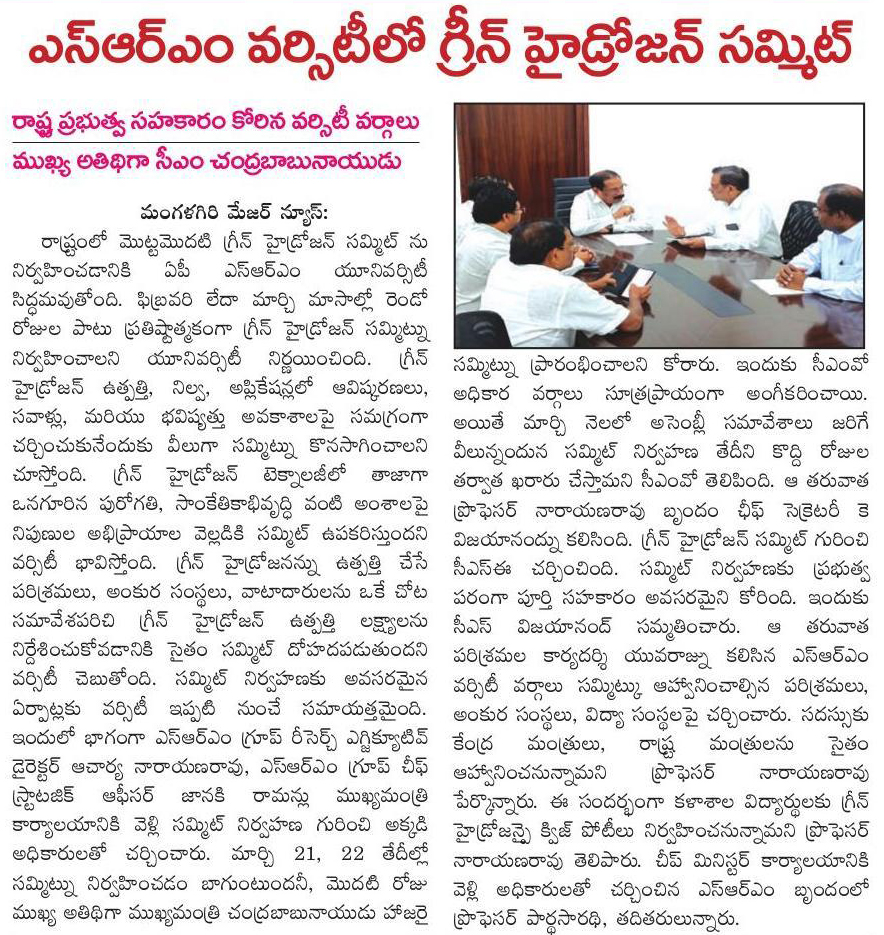
- ACM Winter School 2024: A Platform for Innovation December 31, 2024
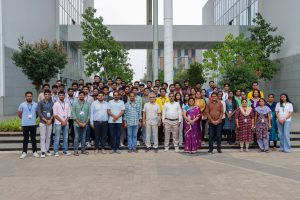 The ACM Winter School 2024, organised by the Department of Computer Science, was aimed to enhance advanced learning in the field of computing. This prestigious programme successfully attracted participants from across India, representing 22 eminent institutions, including notable names like IIT Delhi, IIT Gandhinagar, and IIT Hyderabad.
The ACM Winter School 2024, organised by the Department of Computer Science, was aimed to enhance advanced learning in the field of computing. This prestigious programme successfully attracted participants from across India, representing 22 eminent institutions, including notable names like IIT Delhi, IIT Gandhinagar, and IIT Hyderabad.The inaugural session, was graced by distinguished academic figures such as Prof. Nibaran Das from Jadavpur University and Prof. C V Tomy, the Dean of the School of Engineering and Sciences. The faculty coordinators, Dr Priyanka Singh, Dr Ajay B, Dr Ravi Kant Kumar, and Dr Niladri Sett, played significant roles in facilitating the event.
During the opening remarks, Dr Ajay B, who serves as an Assistant Professor and faculty coordinator, emphasised the importance of creating platforms that inspire innovative thinking and empower students with fresh, out-of-the-box ideas. His perspective resonated with the overarching goals of the Winter School to cultivate cre
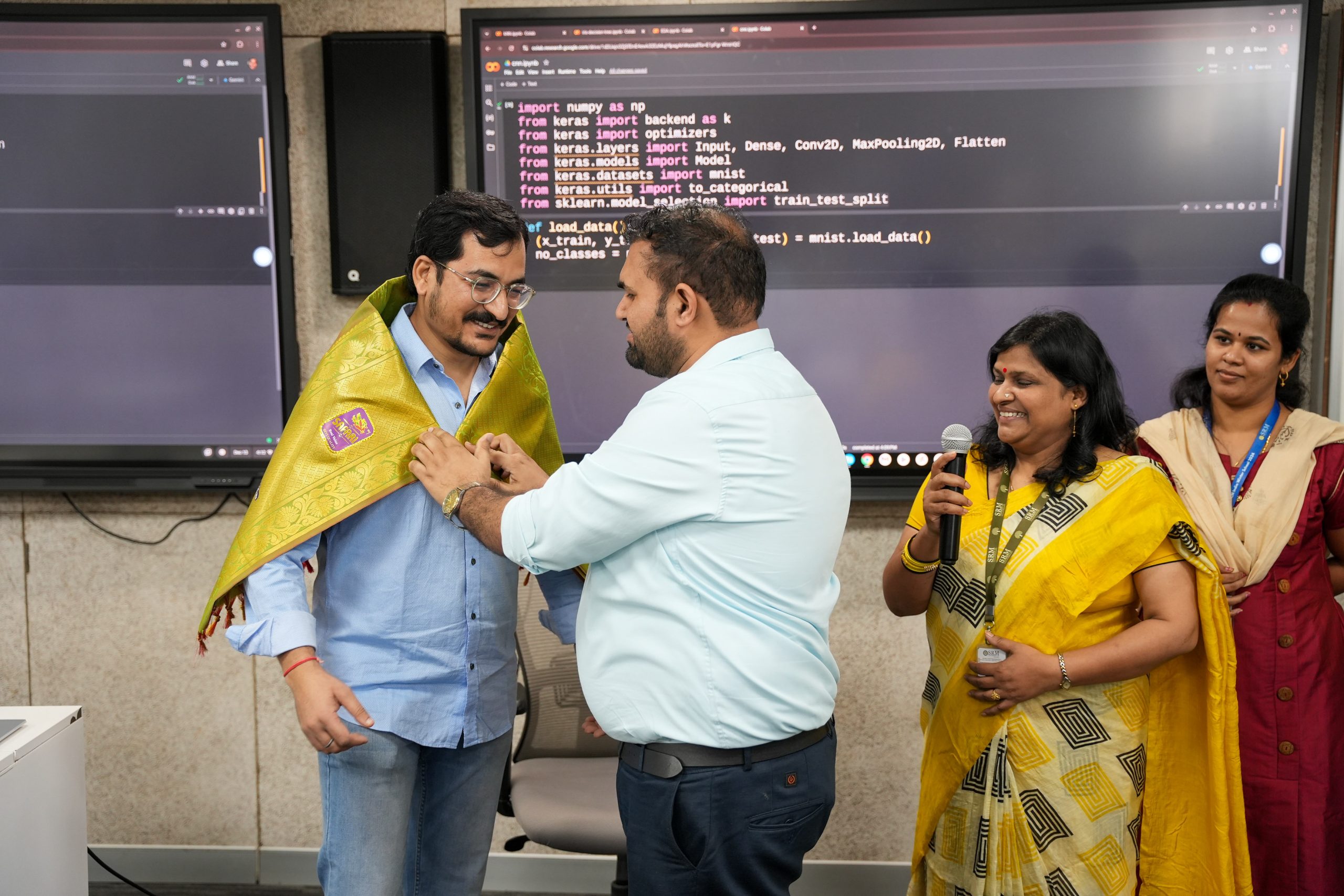 ativity and collaboration among the participants.
ativity and collaboration among the participants.Dr Priyanka Singh provided a comprehensive overview of the programme’s objectives, setting the tone for the enriching experiences that lay ahead. Following her, Prof. C V Tomy addressed the audience, underscoring the significance of such events in offering new insights and facilitating networking opportunities. He praised the organising team for their commitment to making this initiative a reality and highlighted its potential impact on the academic journeys of the participants.
With a dynamic lineup of sessions led by experts from various parts of the country, the ACM Winter School delivered a transformative learning experience. This gathering promotes collaboration and knowledge exchange, aiming to foster a deep understanding of critical computing topics among attendees.
Adding to the programme’s rich content, Dr Abhishek Singh was recognised as the esteemed resource person for the Winter School. His extensive expertise and invaluable insights have significantly enriched the experience, inspiring participants to engage in innovative thought. The gratitude expressed by the faculty coordinators—Dr Priyanka Singh, Dr Ajay B, and Dr Ravi Kant Kumar—reflects the lasting impact his contributions have made on all attendees.
The ACM Winter School 2024 promises to be a milestone event, equipping participants with knowledge and skills that will undoubtedly resonate in their academic and professional pursuits.
Continue reading → - Commemorating National Mathematics Day December 31, 2024
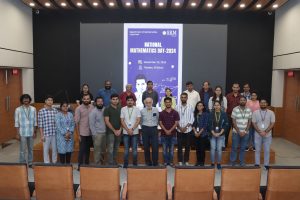 The Department of Mathematics commemorated National Mathematics Day on December 20, 2024, with a remarkable event honouring the birth anniversary of the legendary mathematician Srinivasa Ramanujan. The celebrations encapsulated Ramanujan’s works, achievements, and the significance of mathematics in everyday life through various guest talks, programmes, and a movie screening.
The Department of Mathematics commemorated National Mathematics Day on December 20, 2024, with a remarkable event honouring the birth anniversary of the legendary mathematician Srinivasa Ramanujan. The celebrations encapsulated Ramanujan’s works, achievements, and the significance of mathematics in everyday life through various guest talks, programmes, and a movie screening.Chief guest Prof. Rajat Tandon, Retired Professor from Hyderabad Central University, delivered the keynote session underscoring the significance of the subject and recognising its widespread applications in technology, engineering, economics, healthcare, and beyond. Dr Sazzad Ali Biswas, Assistant Professor from the Department of Mathematics, SRM AP, also elucidated exploring the world of mathematics and the myriad of opportunities that lie within academia, industry, and research.
The National Mathematics Day Celebrations also featured a movie screening of the Oscar-winning film A Beautiful Mind, a biographical drama about the mathematician John Nash, a Nobel Laureate in Economics. The film engaged students in a deep exploration of mathematics and inspired them to achieve excellence in the field.
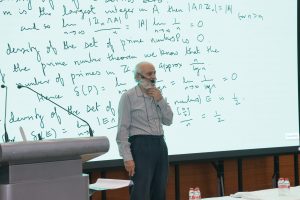
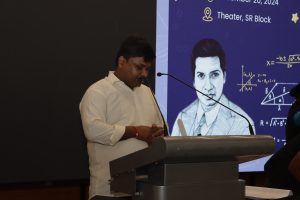
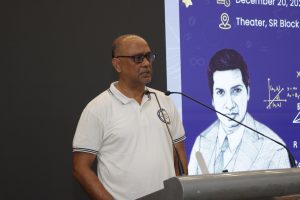
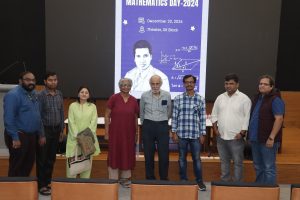
Continue reading →


